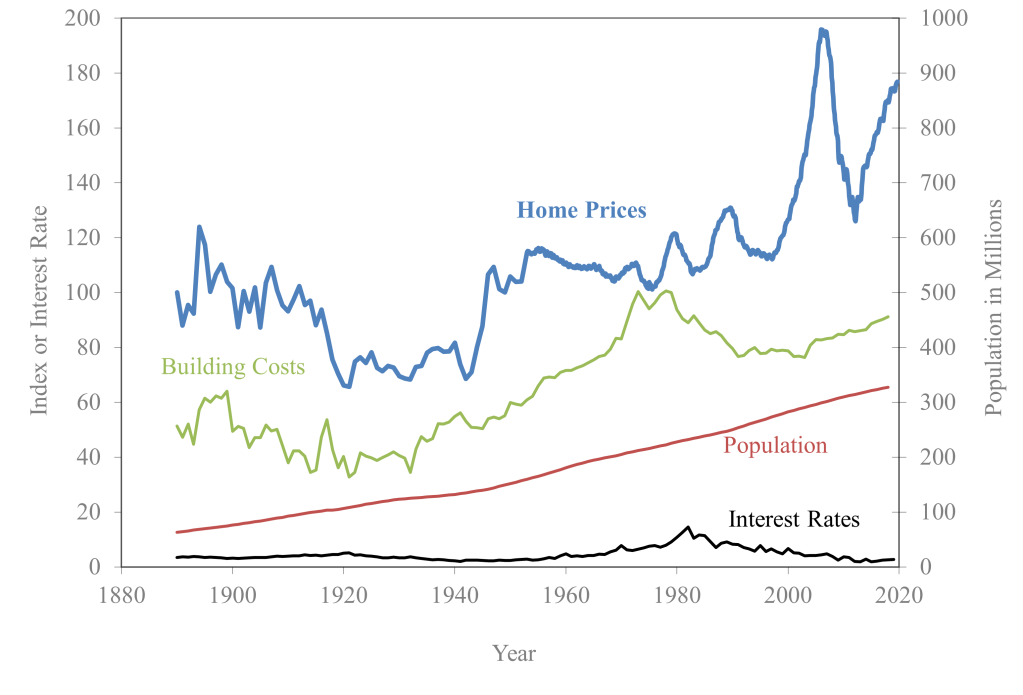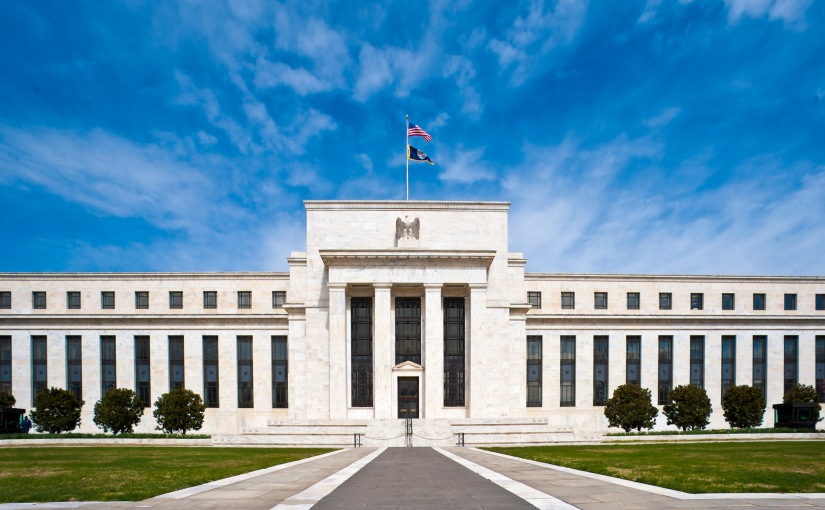Fair warning: The following is a highly political and somewhat pessimistic rant on a ‘dry’ subject. You may not enjoy it. In fact, you are a weirdo if you do.
I first became interested in central banking in a serious manner during my time as an undergrad at uni (and yes, I was fun at parties, why do you ask?). Naturally, I had been dimly aware of the existence of central banks since at least 08 and in a very superficial sense, grasped that interest rates were kind of important and had even heard of quantitative easing. Nevertheless, there was this lingering sensation that there was more to that particular story that I did not appreciate, something I just did not get about these systems that had such a powerful influence on financial markets, economies and the polis. Being a curious fellow, I went from furrowing my brow at Buffett talking about low interest rates pushing up equity valuations to reading Princes of the Yen (good book by the almost as crazy as he is sharp Richard Werner) and brooding over the Wikipedia entries of Gosbank, Gosplan and Gossnab to devouring Lords of Finance by Liaquat Ahamed (a fantastic book if you manage to ignore the unbecoming and, in my opinion, ahistorical level of idolization of Keynes). After not too long, it became pretty apparent to me that my ignorance of central banks had been a major blind spot and I all of a sudden felt many of the pieces that connected my knowledge of history with my growing literacy of economics fall into place in an almost uncanny fashion. Perhaps most impressive to me was just how political it all turned out to be. Perhaps that makes me naïve, but when Bernanke and Yellen, the very epitome of technocrats, talked about their rigorously data-driven approach and how well they managed 2008, I previously had not mustered the necessary context and critical thought to go, you know, ‘hang on how can something that drives level of employment, housing costs, FX, borrowing costs, bank capitalization regulations and asset prices simultaneously on national and global levels with minimal accountability to the electorate not be political?’. I am a little slow that way, I suppose.
Be that as it may, by the time I graduated I had been stewing long enough in the Keynes-Hayek-Friedman Goulash for matters of central banking to have by far eclipsed climate change in my short list of greatest concerns. In fact, the consequences of the present brand of central banking are one of the few things that manage to make me anxious, the others being neurodegenerative disease, stroke, fatal cancers and death. You can imagine that I have been observing global response to the pandemic with immense dismay.
Why? Because it really emphasized just how much consensus there is behind the path we are going down as a global society. Sure, people may be intensely divided all over on the Brexits, the Trumps & Bidens, the BoJos – but if you look at the field of monetary policy, the differences between factions are not qualitative but at best whether the next stimulus package should be measured in the single digit percentages of 2019 GDP or double digits. To be clear, I do not mean to suggest that there are no contexts in which these transfers will have merit, particularly in the United States, where helicopter money is a way to expand welfare without experiencing immediate political deadlock and public infrastructure is crumbling, or in selectively alleviating some of the pain of quarantines. But all this is not free, despite what the MMT people (it amazes me they can breathe independently) would have you believe.
There was almost zero opposition to taking the toolset quasi-pioneered in late 90s/early 00s Japan and escalated in the West in 2008 as an exceptional emergency response and making it the de facto new modus operandi at ever greater scale. What was supposed to be a last resort has become undeniably chronic. Interest rates have in some countries been negative for years and globally suppressed for decades (making traditional saving impossible), quantitative easing, which was meant to be long reversed by now, commonplace, and massive monetization of government debt accepted as though it were war time. Speculation is rampant and prices of every asset class distorted. But do not worry guys, we will totally raise taxes on the rich. Definitely not net regressive. Pinky promise.
This state of affairs is already absolutely toxic but I fear that the worst lies still ahead. As systemic fragility increases thanks to bloated valuations, dumb leverage and even dumber pricing (aka excessive momentum), the stakes grow higher and higher, guaranteeing a brutal recession if any major central bank should tilt even slightly hawkish. I am afraid that we have already passed the point of no return and I do not see any Volcker-like figure on the horizon, not without CPI inflation and certainly not among the peers of Powell and Yellen. They will continue to be more and ever more ‘accommodative’ and when the crashes become more frequent and more violent, they will turn more aggressively interventionist yet. The rhetoric that markets have become unhinged and need stronger government guidance will accelerate. And most people will believe it. It is twisted that arsonists should masquerade as firefighters, but it is sickening that most will give them credence.
Maybe it is just that I frequent the wrong public fora, but I think that present discourse is for the most part utterly imbecilic. People who cannot read the simplest of financial statements are drowning in FOMO, while lecturing on crypto and Tesla. Hundreds of thousands are gleefully gambling with their life savings and college funds (incidentally tuition inflation is also just another side effect of the status quo) on margin and derivatives they overtly do not understand. How does any of this make for a desirable society? Social mobility is beneficial when it is merit based, not when it rewards those who have excess capital merely for having it and the odd speculator for taking boneheaded risks they can ill-afford. Stocks only go up is a daft maxim, but it is orders of magnitude dafter that it will hold broadly true for as long as excess credit is pushed into the system. What a mess.
The funny thing is that I am not anti-government. Hell, I would wager that I consider the SEC far more important than Jay Clayton (admittedly not a high bar) does. But it is not a question of more or less government or regulation. The regulatory framework would have been sufficient, were it effectively and intelligently enforced! While I believe 100% that government plays an important role in the economy and society, I equally believe government should not be the economy and society. Some circles of intelligentsia may deride the cliché and people are free to think me a trite libertarian capitalist, but centrally planned economies and financial systems eventually collapse for good reason.
Further, I even notionally benefit from these developments, with over 95% of my net worth in equity. On the face of it I should embrace all this. But what point is there in being rich in a beggared global community? Were growth rates not low enough in the West to begin with, so that we now need to suppress productivity for political ends? The socioeconomic shifts that these policies constitute will only reinforce the demographics that are causing this polarization of politics the world over. I cannot see how drifting towards a China-style system (but even less efficient) is in the interest of anyone, least of all European and American middle-classes’.

Source: http://www.econ.yale.edu/~shiller/data.htm
…
As you can see, I am ever so slightly frustrated. Just a tiny bit. At this point, significant consumer inflation would probably be the best turn of events, if it forced central banks to change course. But it might be too little too late. My best guess is that we will experience further asset price inflation, particularly in stocks but also in crypto, maybe even in some precious metals (though I do not advise buying or shorting either) and real estate (personally loathe the real estate people) for at least a few more years. Governments and particularly central banks will acquire a more authoritarian bend than they already have. Direct taxes will likely go up some but not offset the massive regressive redistribution. There will be many more nominal millionaires and billionaires. Classism and political segmentation will strengthen. Yet more trade conflicts. Lower real growth for the foreseeable future. Just peachy.
Hope that you do not feel too crestfallen after reading my perspective
Tom
